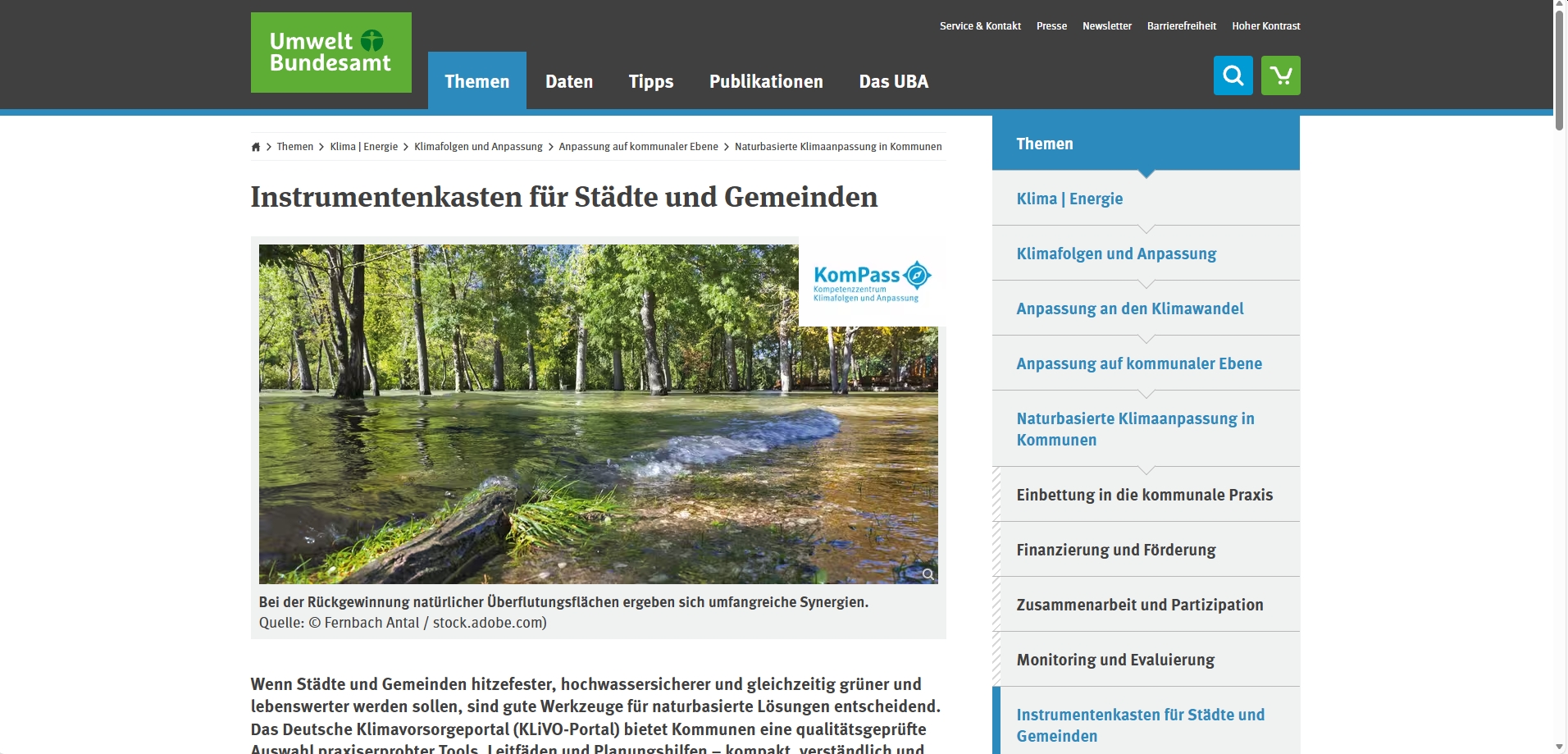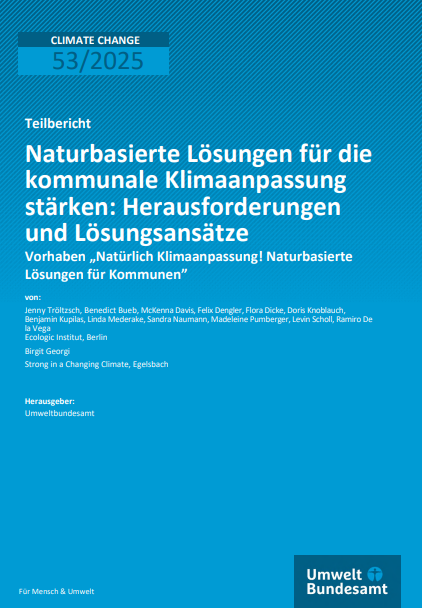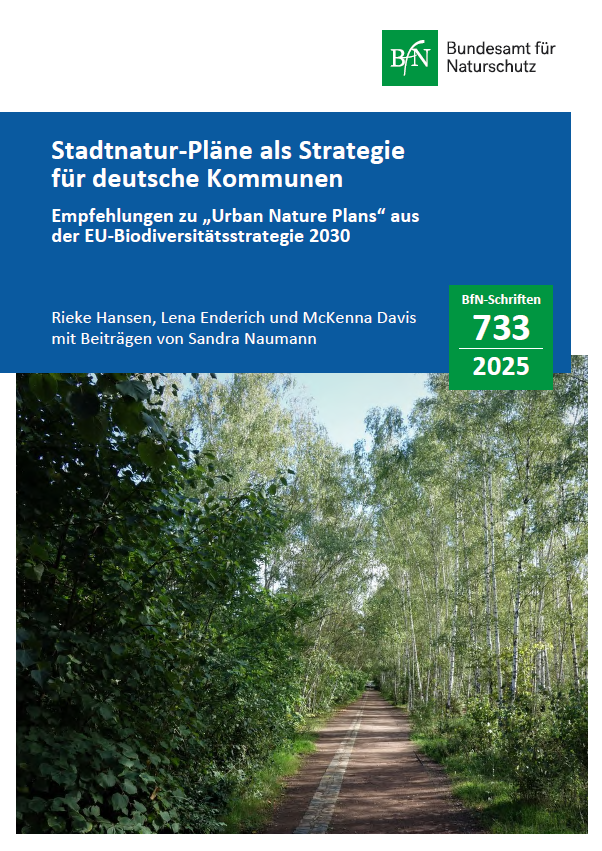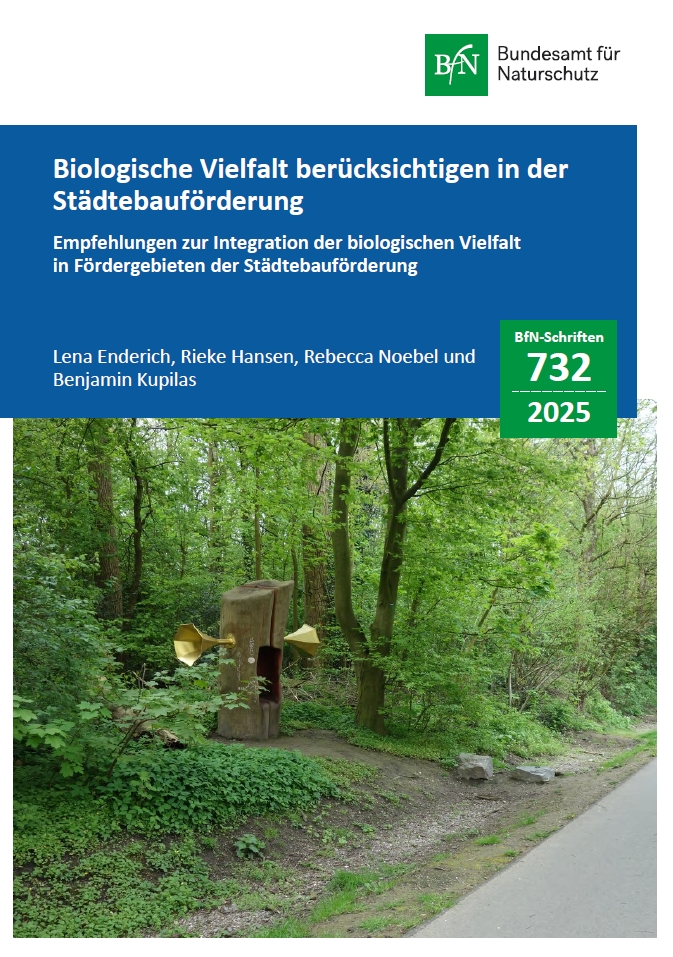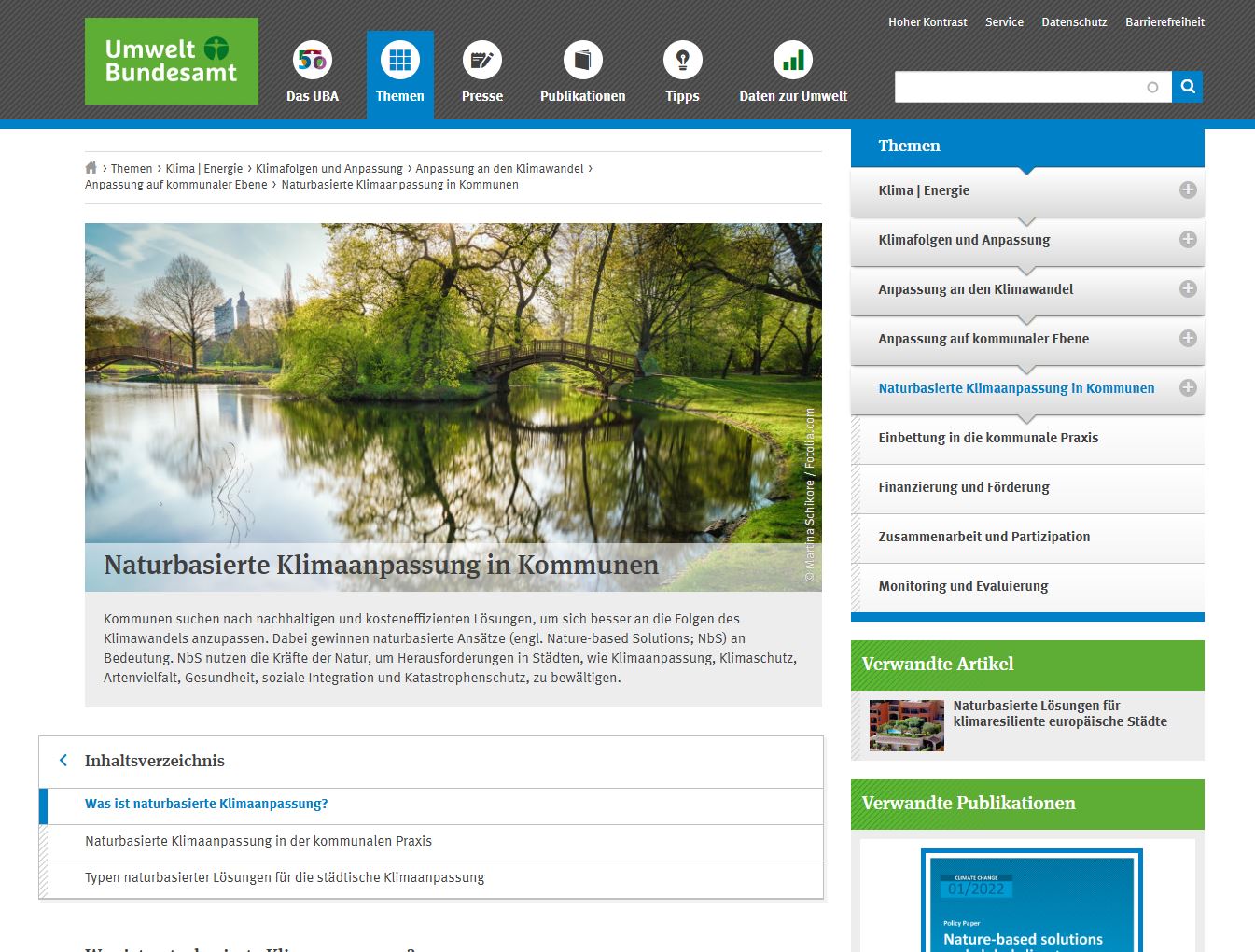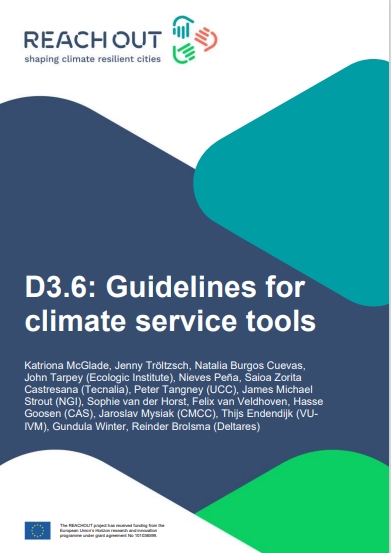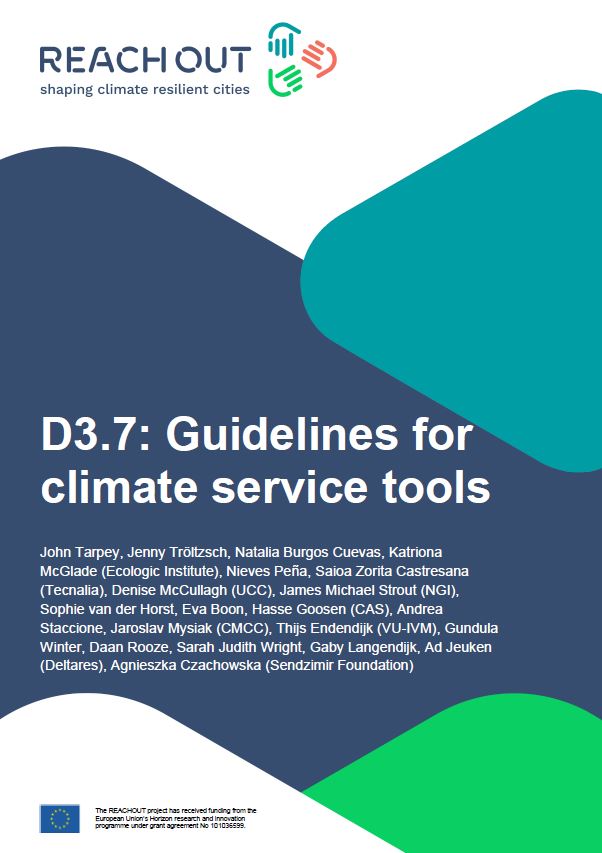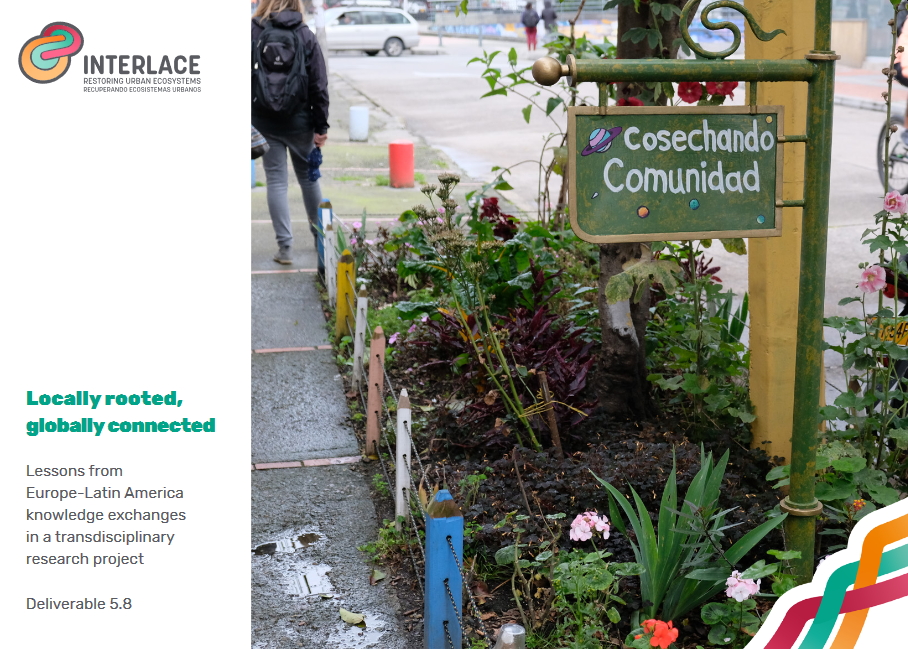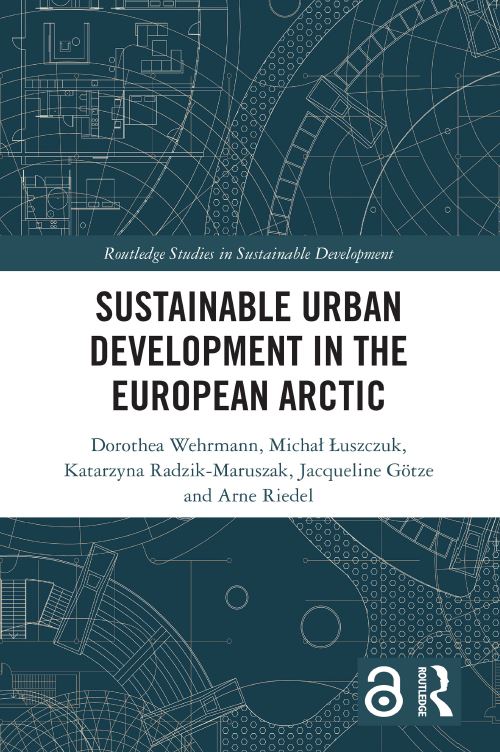Publication:Website
Publication:Fact Sheet
Moving from Interconnected Crises to Systemic Solutions
Resource efficiency, nature-based solutions, and systemic transformation as responses to the complexity of the triple planetary crisis
Year
Read morePublication:Report
Moving from Interconnected Crises to Systemic Solutions
Resource efficiency, nature-based solutions, and systemic transformation as responses to the complexity of the triple planetary crisis
Year
Read morePublication:Fact Sheet
Publication:Poster
Publication:Report
Naturbasierte Lösungen für klimaresiliente Kommunen stärken
Herausforderungen und Lösungsansätze
Year
Read morePublication:Policy Brief
Transitioning to Sustainable Urban Water Systems
Insights from Barcelona, Berlin, and Rotterdam
Year
Read morePublication:Report
Stadtnatur-Pläne als Strategie für deutsche Kommunen
Empfehlungen zu "Urban Nature Plans" aus der EU-Biodiversitätsstrategie 2030
Year
Read morePublication:Policy Brief
Publication:Report
Biologische Vielfalt berücksichtigen in der Städtebauförderung
Empfehlungen zur Integration der biologischen Vielfalt in Fördergebieten der Städtebauförderung
Year
Read morePublication:Policy Brief
Publication:Website
Publication:Video
Publication:Video
Publication:Report
Guidelines for Climate Service Tools
Deliverable 3.6 of Horizon 2020 project REACHOUT
Year
Read morePublication:Report
Publication:Report
Locally Rooted, Globally Connected
Lessons from Europe-Latin America knowledge exchanges in a transdisciplinary research project
Year
Read morePublication:Book
